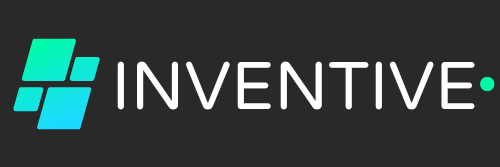Complete Directory of Container Orchestration Tools
Comprehensive guide to 73 container orchestration platforms – from Kubernetes to serverless solutions
As containerized applications become the backbone of modern software architecture, choosing the right orchestration tool has never been more critical. This comprehensive directory covers 73 container orchestration tools, from industry-leading platforms like Kubernetes and Docker Swarm to specialized solutions for edge computing, serverless deployments, and enterprise environments.
Industry-Leading Orchestration Platforms
These platforms dominate the container orchestration landscape, offering robust feature sets for enterprise-scale deployments.
Kubernetes
Description: The gold standard of container orchestration, originally developed by Google and now maintained by the Cloud Native Computing Foundation (CNCF). Kubernetes provides comprehensive features for managing, scaling, and automating container deployments across any infrastructure.
Key Features: Automatic scaling, service discovery, load balancing, storage orchestration, secret management, self-healing, rolling deployments, and extensive ecosystem support.
Best For: Large-scale, complex deployments requiring maximum flexibility and ecosystem integration.
Docker Swarm
Description: Docker’s native clustering and orchestration solution that integrates seamlessly with Docker CLI and API. Offers simplicity and ease of use compared to more complex platforms.
Best For: Smaller deployments or teams already familiar with Docker seeking simpler orchestration.
Cloud-Managed Kubernetes Services
Major cloud providers offer fully managed Kubernetes services that eliminate infrastructure management complexity while providing enterprise-grade features.
- Amazon Elastic Kubernetes Service (EKS): AWS’s managed Kubernetes service with deep integration into the AWS ecosystem
- Google Kubernetes Engine (GKE): Google Cloud’s premier Kubernetes offering, closely aligned with upstream Kubernetes development
- Azure Kubernetes Service (AKS): Microsoft Azure’s managed Kubernetes service with native Azure integration
Serverless Container Solutions
Key Insight
Serverless container platforms automatically handle infrastructure provisioning, scaling, and management, allowing developers to focus purely on application code while paying only for actual usage.
- Google Cloud Run: Fully managed serverless platform enabling containerized applications to run without infrastructure management
- AWS Fargate: Serverless compute engine for Amazon ECS and EKS, enabling container execution without server provisioning
- Azure Container Instances (ACI): Microsoft’s serverless container solution for rapid deployment without VM provisioning
Complete Directory of 73 Container Orchestration Tools
Important Note
Some tools listed below are no longer actively maintained or have been deprecated. Always verify current support status before implementation.
Mainstream Orchestration Platforms
- Kubernetes – Industry-standard container orchestration with extensive ecosystem
- Docker Swarm – Native Docker clustering with simplified management
- Apache Mesos with Marathon – Distributed systems kernel for mixed workloads
- HashiCorp Nomad – Flexible orchestrator for containers, VMs, and applications
- Amazon ECS – AWS-native container service with Fargate support
- Amazon EKS – Managed Kubernetes on AWS infrastructure
- Google GKE – Google Cloud’s managed Kubernetes with advanced features
- Azure AKS – Microsoft’s managed Kubernetes with Azure integration
- Red Hat OpenShift – Enterprise Kubernetes with developer tools
- Rancher – Multi-cluster Kubernetes management platform
Specialized & Enterprise Solutions
- K3s – Lightweight Kubernetes for edge and IoT
- KubeEdge – Kubernetes-native edge computing
- Azure IoT Edge – Container management for IoT devices
- VMware Tanzu – Kubernetes optimized for vSphere environments
- Platform9 – SaaS-based managed Kubernetes
- D2iQ Konvoy – Enterprise Kubernetes with Mesos compatibility
- Mirantis MKE – Enterprise Kubernetes with Docker capabilities
- Kontena Pharos – Security-focused Kubernetes distribution
How to Choose the Right Orchestration Platform
Key Selection Criteria
- Scale Requirements: Small teams may prefer Docker Swarm’s simplicity, while enterprise deployments benefit from Kubernetes’ robust feature set
- Cloud Strategy: Multi-cloud environments favor vendor-neutral solutions like Kubernetes, while single-cloud deployments can leverage native services
- Team Expertise: Consider your team’s experience with specific platforms and available training resources
- Infrastructure Type: Edge deployments require lightweight solutions like K3s, while data centers can support full-featured platforms
Recommendations by Use Case
- Startups & Small Teams: Docker Swarm, Dokku, or managed services like Google Cloud Run
- Enterprise Deployments: Kubernetes (via EKS/GKE/AKS), Red Hat OpenShift, or VMware Tanzu
- Edge Computing: K3s, KubeEdge, or Azure IoT Edge
- Serverless Workloads: AWS Fargate, Google Cloud Run, or Azure Container Instances
- Multi-Cloud Strategy: Kubernetes with Rancher or Google Anthos
Elevate Your IT Efficiency with Expert Solutions
Transform Your Technology, Propel Your Business
Navigate the complex container orchestration landscape with confidence. InventiveHQ’s expert consultants help you select, implement, and optimize the perfect orchestration platform for your unique infrastructure requirements.

